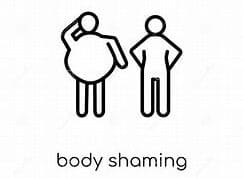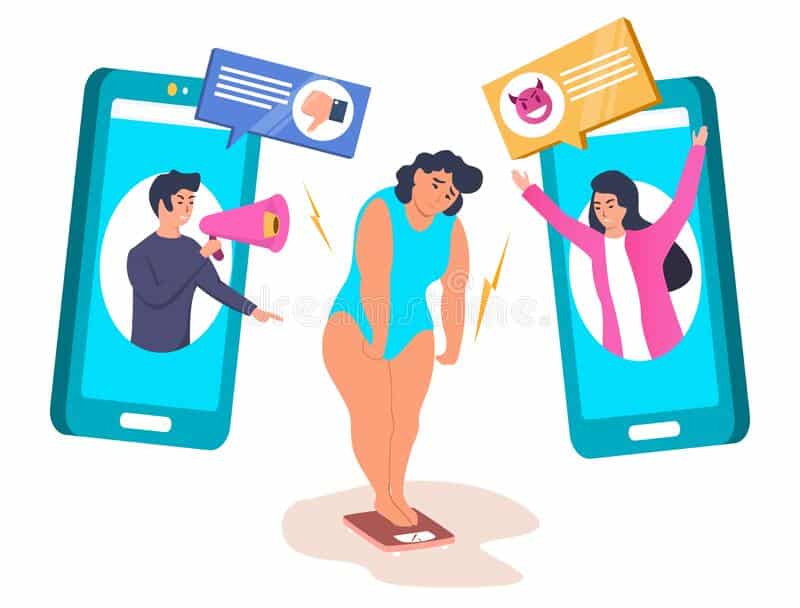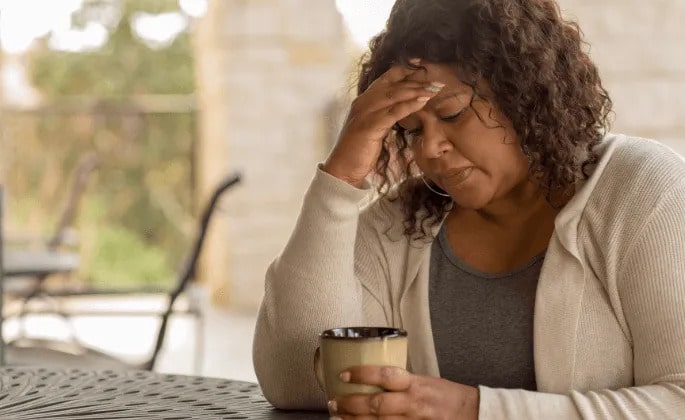Are you curious about the act of body shaming? Do you really think that body shaming is just criticizing someone’s looks or appearance or something more?
Due to the digitalized social-media-obsessed world that we are in, we have forgotten the things that count as body shame. And shockingly, most of us do it to ourselves, sometimes unintentionally.
What is Bodyshaming?

Body shaming often involves humiliating someone by making inappropriate or negative comments about their body size or shape or weight. This basically means mocking someone’s physical appearance.
The truth is that bodies come in all shapes and sizes. We live in a diverse world and all bodies should be valuable no matter what. However, people are often the subject of shaming or critique by the public and also by those closest to them.
Related: Mental Illness: Causes and Perception in Nigeria
What are the kinds of body shaming?

Body shaming emerged years ago, even before social media was invented. One could say that social media just intensified it. But in the past, people who were on the “big” side were criticized for being “overweight”, also known as fat shaming. The culture respected the slim, which is why most models put themselves through excruciating processes to stay prim and lean.
Body shaming most often refers to someone’s body. However, other attributes of a person’s physical appearance can also be targeted, such as weight, attractiveness, age, clothing, body hair, and importantly, skin color.
See: 10 Ways to Keep a Healthy Lifestyle
What counts as body shaming?
One thing society has been able to do with ease is set beauty standards. People are very sensitive about their bodies; any comment about any part of the body, be it a zit or body hair, can bring out so many emotions.
Society places standards on people, especially women. They speak about the time of marriage, work preference, childbirth, etc.
As outlined above, fat shaming started in the olden days. A fat person would likely hear words like “How many times do you eat in a day?” or “What diet are you on?” You may not know, but asking questions like that count as body shaming.
Here are other unknown things that also count as body shaming;
Read: How To Handle Burnout As A Creative Person
Speaking ill about your body
Yes, body shaming doesn’t just happen when you speak about someone’s body features. It can also happen to you BY YOU. You can body shame yourself.
It starts with phrases like “I don’t like this hair” or “I don’t like my thighs”. When you constantly speak about a particular body part, you are pulling yourself down. From then, you begin to compare yourself to others.
“Compliments” and harmless questions
As diverse as the world is, it is also petty. Compliments from strangers or loved ones can be a form of body shaming. What people don’t know is that their words hurt. One doesn’t have to scream out the aspects wrong in another person’s body. They can be hidden compliments or questions.
Questions such as “What diet are you on?”, “Did you lose weight?”, “You should eat something”, “You should cut down on your carbs”, “Have you considered exercise and gyming?”… all of these count as body shaming.
See: Easy Ways To Build Confidence
Questioning men’s body type
Oftentimes, when we think about body shaming, we think it’s only targeted at women. This is a wrong perception. Men are also called out on their bodies. The society also places a standard on men.
Men these days are supposed to be tall and muscular. When a man is short and on the chubby side, people begin to question his masculinity.
The truth about body shaming

Everybody is guilty of body shaming. We even do it to ourselves. Have you ever stood in front of the mirror and quibbled about one thing wrong with your body and continually put yourself down for it?
Body shaming manifests itself when you do it to yourself and to someone else by criticizing their appearance. “Look at your big tummy” is not the appropriate way to tell your friend to cut down on carbs. Honestly, that is not your business. It is wrong to speak so much about someone’s insecurities. It is even more wrong when you continue to do so after the person has spoken against it.
But bodies change all the time, and weight loss can often be unintentional due to a physical or mental health condition or illness.
Body shaming can lead to various eating disorders, body dysmorphia, anxiety and self-esteem problems.
See: 5 Ways to Improve Your Time Management
Why do people body shame?
Our “selfie” culture emphasizes outward beauty and we’re constantly bombarded with images of glamourous people in magazines, advertisements, TV shows, and other types of media. These influence our standards of beauty.
What you see every day on social media, including Instagram, can generate feelings of envy and anxiety. Apart from that, you can also place so much pressure on your physical appearance.
You may struggle to live up to these standards and experience negative feelings and judgments about yourself. This can become destructive when it diminishes your self-worth and body image.
How can we stop body shaming?
If you’ve been affected by body shaming and feel it’s taking a toll on your mental health, know that you are not alone. You can consider the option of finding a community and assistance through support groups or a therapist or you can take a break from social media which is the “place” that promotes body shaming.
While we cannot control the actions of others, we can control how we contribute to the body-shaming culture.
Make sure that you’re not body shaming yourself or others – with others, it can simply come as a question as outlined above. Watch your words with people, and generally don’t cross boundaries.
For yourself, you understand what part you don’t like about your body and appreciate it regardless. It’s your body and nobody rocks such a beautiful framework as you.
Be body-positive and move with people who are.
Read: Dating Apps in Nigeria
Conclusion
Try to be more inclusive and accept others regardless of their shape or size. Also, do not engage in any type of shaming; this can help everyone’s mental wellness.
Stop criticizing people. Let’s appreciate people for how they look. Remember “little’ jokes could harm a person’s mentality.
Let’s be gentle on our words and for those whose facial expressions say a thousand words, let’s tone it down too.
